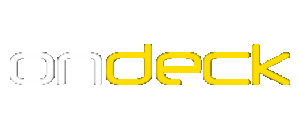General Fire Training
The risk of fire is present in any organisation, even in well managed businesses a fire can occur. Once started it produces heat, toxic gases and large quantities of smoke. These may rise and also spread horizontally through open doors and unenclosed stairways preventing people from using the means of escape provided. The inhalation of smoke and toxic gases has been shown to be one of the main causes of fire deaths.
A lack of confidence, knowledge and experience can lead to a fire extinguisher or other appliance being used incorrectly which can be extremely dangerous.
Fire training at Ondeck can be tailored to your requirements no matter what industry your business is in. If you have a building or boat, then fire safety should always be a top priority.
Subjects covered in this module include:
Understanding of the theory of fire, including the triangle of combustion and its behaviour.
Understanding of the spread of fire by conduction, convection, radiation and direct burning.
Understanding of hazard identification and fire prevention.
Understanding of raising the alarm, evacuation of persons and self-rescue techniques.
Effective use of portable fire extinguishers to extinguish real fires of different classes.
Understanding of the implications of incorrect use of fire extinguishers.
Effective use of a fire blanket on real fires.
This course will provide your staff with a general understanding of basic fire awareness including the initial actions to be taken in the event of a fire, how to prevent a fire from occurring and an understanding of the different types of extinguishers and their methods of operation, capabilities and limitations.
Essential demonstrations and practical hands on experience tackling real fires in a controlled environment will provide your staff with the confidence, knowledge and experience to use portable fire equipment including fire blankets should the need arise.
On completion of this course each student will receive an Ondeck certificate in Fire Safety and Awareness.
Super Yacht Fire Team Training (Non- STCW)
Whilst drills are conducted on board your vessel in accordance with the relevant regulations you come under, these are done cold. In addition, crew are trained to STCW standard every 5 years, however, it is not often that crew are trained together as a team in a live fire environment. Ondeck can provide you with expert instructors and the facility to train you’re on board fire teams using your procedures and tactics within our hot fire unit covering exercises from casualty rescue to fighting fires with the use of hoses.
On completion of this course each student will receive an Ondeck certificate in Live Fire Team Training.
Please click on the 'Training Dates & Booking' button on the right to check available dates.
